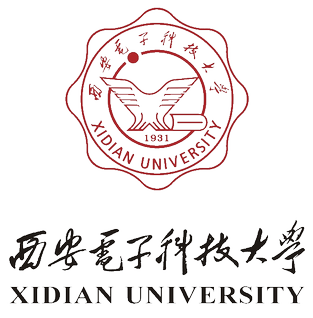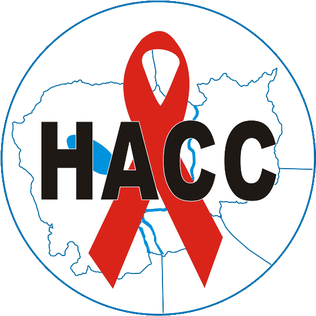Telecommunications had an early beginning in Mauritius, with the first telephone line installed in 1883, seven years after the invention of the telephone. Over the years, the network and telephony improved. By the late 20th century, the rapid development and convergence of information and telecommunications technologies gave rise to an ICT industry on the island along with many incentives provided by the government. The government thus aims to make the ICT sector the 5th pillar of the Mauritian economy and Mauritius a Cyber Island. Historically, the country is known for tourism, rather than its call centers and business process outsourcing.

The National Telecommunications and Information Administration (NTIA) is an agency of the United States Department of Commerce that serves as the President's principal adviser on telecommunications policies pertaining to the United States' economic and technological advancement and to regulation of the telecommunications industry.

Xidian University is a public research university directly under the Ministry of Education of China, located in Xi'an, China. Founded in 1931, the university is considered one of the top universities of research and education of engineering in China. Its electronic engineering program ranks 5th in China.[2][3] It is ranked 30th in Best Global Universities for Computer Science by U.S. News & World Report. It is also one of the universities funded by Project 211 and Project 985 Innovation Platform for Superiority Subject. Xidian University now dedicates primarily to the electronics and information education and research, with an integration of a wide range of academic subjects covering engineering,science, management, economy, arts and social sciences. It is a Chinese Ministry of Education Double First Class Discipline University, with Double First Class status in certain disciplines.

Chongqing University of Posts and Telecommunications is a public university in China's fourth largest municipality: Chongqing. It focuses on the research and education in the field of information and communications and enjoys nationwide reputation in the study of postal communications, telecommunications and information technology, especially for its research and commercialization in 3G mobile technologies, optical sciences and related digital research. It is one of the four universities of Posts and Telecommunications in China and the only one of its kind in the Southwest China. It enjoys a good reputation in the ICT industry in China due to its high quality education and research and the large number of alumni working in the ICT industry. Due to its achievements and contributions in the field of information and communications technology, especially in the development of China's own digital communications systems, CQUPT is considered as the cradle of China's digital communications.

King Mongkut's Institute of Technology Ladkrabang is a research and educational institution in Thailand. It is in the city of It is approximately 30 km east of the center of Bangkok in Lat Krabang District, Bangkok, Thailand, and has seven faculties: engineering, architecture, agricultural technology, science, industrial education, agricultural industry, information technology, and liberal arts.

The Government of Pakistan is a federal government established by the Constitution of Pakistan as a constituted governing authority of the four provinces of a proclaimed and established by the parliamentary democratic republic, constitutionally called the Islamic Republic of Pakistan.
The Free and Open Source Software Asia-Pacific Consultation, or FOSSAP, was an event promoting free and open source software held twice in Asia, in 2004 and 2005. The first event was held in March 2004 in Kuala Lumpur, Malaysia, while the second event was held in September 2005 in Siem Reap, Cambodia.

The Department of Transportation is the executive department of the Philippine government responsible for the maintenance and expansion of viable, efficient, and dependable transportation systems as effective instruments for national recovery and economic progress.

The Presidential Communications Group or simply the Communications Group, is the collective name for the newly formed offices within the Office of the President of the Philippines and refers to the following positions and offices: the Presidential Spokesperson and the Presidential Communications Operations Office (PCOO)—formerly the Office of the Press Secretary.

Webel Informatics Limited (WIL) is a wholly owned subsidiary of the West Bengal Electronics Industry Development Corporation Limited (WEBEL), which is a government agency responsible for technology development in West Bengal. WIL's mission is to upgrade the level of computer literacy in West Bengal, and it produces around 6,000 professionals every year. With more than 140+ franchise locations all over the state, including Bhairab Ganguly College, the company also conducts corporate training in 100 government-aided schools.
The following outline is provided as an overview of and topical guide to information technology:
E-government began in South Korea in the 1980s when the Ministry of Government Administration and Home Affairs (MOGAHA) began to implement ICT within government, based on the "National Backbone Computer Network" consisting of five national networks. An Information Super-Highway was launched in 1993, followed by the creation of the Ministry of Information and Communication (MIC). Public access to government information services began to move online in the late 1990s; and a drive for "Participatory Government" gave further impetus for e-government after 2002, led by the 2003 "E-Government Roadmap" which sets a number of specific targets.
Mike Monroney Aeronautical Center is administered as one of the FAA Regional Offices.

The Ministry of Transport, Communications and High Technologies is an Azerbaijani governmental agency within the Cabinet of Azerbaijan in charge of regulation of the communications sector and development of information technologies in the country. On the 12 November 2015, the head of the ministry, Ali Abbasov has been dismissed from his post.

HIV/AIDS Coordinating Committee (HACC) (គណៈកម្មការសំរបសំរួលប្រយុទ្ធនឹងជំងឺអេដស៍) is a HIV/AIDS Cambodian NGO network, representing over 120 NGOs working with HIV/AIDS in Cambodia. It was established in 1993 to coordinate civil society organizations and to promote the sharing of information, experiences and advances from the field among civil society organizations in responding to HIV/AIDS in Cambodia. Its role is to create partnership and collaborate with all stakeholders for an efficient, effective and sustainable response to the HIV/AIDS epidemic in Cambodia and its impact on society. In addition, HACC cooperates with members to coordinate the NGO response to HIV and AIDS at national and provincial level, promote communication and the sharing information among members and between all those involved in the HIV and AIDS response in Cambodia, raising awareness of HIV/AIDS and gaps in response, represents NGO responding to HIV/AIDS at national and international forums where they have received a mandate from their members and to advocate for the full involvement of civil society in determining policy, setting national target, priority activity, developing plan and monitoring the progress in relation to HIV/AIDS.

Yasser ElKadyياسر القاضي was the Minister of Communications and Information Technology in Egypt between 19 September 2015 and 14 June 2018. ElKady has been in the IT and Telecom industry for over 25 years with solid experience in strategic planning, technology integration, business development and organizational transformation.
Passerelles numériques (PN) is a French Non-governmental organization created in 2005 in Cambodia. The organization later expanded its actions and now operates in Cambodia, Vietnam and the Philippines.
The Government agencies in Bangladesh are state controlled organizations that act independently to carry out the policies of the Government of Bangladesh. The Government Ministries are relatively small and merely policy-making organizations, allowed to control agencies by policy decisions. Some of the work of the government is carried out through state enterprises or limited companies.











